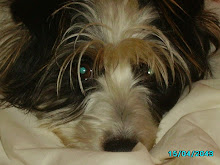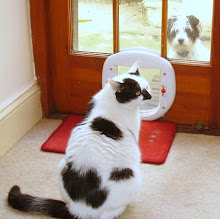The recent conviction of Derek Chauvin of murdering George Floyd is welcome news to many Americans, and may be a step forward in race relations - maybe not. I would like to think so. What made me sad was wondering why there was such segregation in the first place. It got me thinking of my first job in London.
All this is background to the daughter, Jess, in my novel Hunger, though she doesn't have a stint in London. Well, she may in another book - but I digress. I was 18 or 19, anorexic and desperate to find a job in London to pay the rent so I went to an employment agency called Brook Street Bureau, where I was attended to by a bored girl who had little interest in me. She was pregnant, I remember, and wouldn't let me smoke. (This is so dated it makes me laugh, thinking of it.)
She got me a job as a filing clerk at Saatchi & Saatchi Garland Compton, as it was in those days, and I can't even remember what we filed but i know it was boring. I made friends with a girl a bit older than me, called Donna, and she was a good friend. She was engaged and later married her fiance and I was invited to the wedding, which took place the other side of London where I was living - out near Crystal Palace, I think. I know it was the other end of the Number 12 bus route, and seemed to take forever to get there.
When I got to the huge hall where the wedding and party afterwards took place, it was frantically busy, and I knew no one. However, everyone was so friendly, and made me welcome, made sure I had somewhere to sit and something to eat and I remember feeling very at home there. This was unusual as being anorexic makes you feel like a stranger on a different planet, but I remember their kindness and warmth, 40+ years on.
As I trundled back on the bus that evening, I can remember reflecting on what a lovely bunch of people they were, welcoming me into their gathering as if I were part of the family, and I hope that Donna, who will doubtless be a grandmother by now, is living happily with her large family by now.
The only thing I was aware of was being stared at for a minute when I arrived. I was used to that. It's like when someone dies - no one knows what to say. 'Why are you so thin?' isn't the greatest conversation opener. But no one mentioned my size. (Though they did ply me with food.)
Looking back over the event that is still the best wedding I've ever been to, I thought, 'Oh, come to think of it, I was the only white person there. Was that it? But no, surely not.
Thursday, 22 April 2021
Tuesday, 13 April 2021
A huge void
Most of us have lost someone dear to us, and that thought has been very much in the minds of everyone following the death of Prince Philip. Regardless what anyone may think of the monarchy, I think of her as someone who has lost someone she spent nearly all her life with. I know what it felt like when I lost Pip, but to magnify that sensation a hundred times over - well, I can only say that I have an inkling of what the Queen is going through.
As I seem to like writing about difficult topics, I decided to tackle loss in my novel, HUNGER as well. I remember, shortly after Pip died, I was having a walk with my friend Anna, who was telling me about a friend of hers (are you following?) whose husband had left her. I thought, 'Well, at least my grief is pure and simple. It's agonising but it's straightforward. And I know that I was utterly and completely loved. Whereas in cases like Anna's friend, it's so much more complicated. Which means it's much worse to try and live with all the ensuring emotions - grief, anger, jealousy, lack of confidence, hatred, to name but a few.'
All of this is rich fodder for the writer, of course. So the circumstances in HUNGER are very different to the ones I found myself in. But grief is grief, and there are no clear cut paths through it. Everyone has to find their own way, as I discovered.
When a dearly beloved dog dies - well that is just as bad as losing a person. Moll had to be put to sleep but that wasn't a choice I found difficult to make. I will not see any animal I love suffer, so it is their welfare that comes first. Pure and simple. But again, I chose to tackle dog problems differently in my novel because it might help other people - and also, of course, it's a more interesting read.
Much has been written about grief, and I read a huge amount after Pip died. It was such a horrible time that I wanted to move the process on as quickly as possible. It gnaws away at you like a greedy monster. It moves in, leaving room for little else. Getting out of bed was a major achievement, let alone walking Moll, or getting through the day. A dear friend who was nursing in ICU the day before Pip died gave me some wonderful advice. Her son had died young so she spoke from experience. "The sooner you can accept what's happened, the sooner you can move on," she said. "Otherwise the grief is so much more difficult, and lasts much longer."
I'm sure the poor Queen needs no advice, for she will be living with the rawest of grief for a while to come. But friends and family - and the nation - can provide some comfort for a life so well lived.
Subscribe to:
Comments (Atom)
















